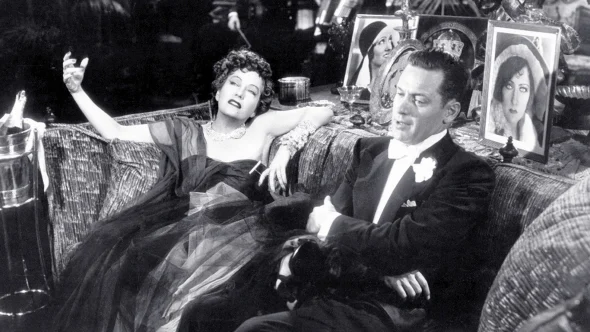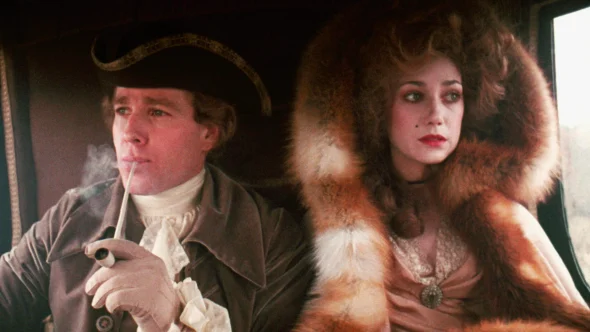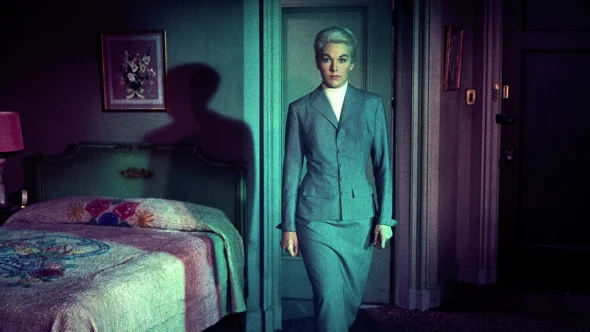
Christopher Hampton is a three-time Oscar-nominated screenwriter who has won two Oscars. And yet, his favorite Oscars memory is from the year he was nominated but did not take home the statuette. Hampton, who was nominated for Best Adapted Screenplay for 2007's Atonement, says he still fondly remembers a conversation he had mere moments before that year's ceremony began.
"I have a very vivid memory of sitting with my friend, Ronald Harwood, who was also nominated that year for The Diving Bell and the Butterfly," Hampton recalls. "As the lights went down and the music began to play, Ronnie leaned over and said to me, 'It's very strange how, whenever these things start, you begin to feel really optimistic, don't you?' I said to him, 'Ronnie, can you see the Coen Brothers sitting 12 rows in front of us?' Of course, he immediately responded, 'Oh, yes, yes. You're right.'"
Hampton's prediction came true that year when fellow nominees Joel and Ethan Coen won for Best Adapted Screenplay with No Country for Old Men. For his part, Hampton had already won the Oscar for his adaptation of 1988's Dangerous Liaisons, and the British playwright, screenwriter, and translator won the Oscar for Best Adapted Screenplay again for co-writing 2020's The Father with director Florian Zeller.
"It's always a very mixed thing because you're kind of scared as well as elated to be there at the Oscars," Hampton admits. "In a way, winning for The Father was the strangest experience of all, because we didn't have to go to Los Angeles" — Zeller accepted the award from a satellite "hub" in Paris, Hampton attended the show from another hub in London — "and I didn't even have to speak! That was quite relaxing, though, since it was 2 o'clock in the morning."
Following their success on The Father, Hampton and Zeller reteamed to adapt The Son, the second installment in Zeller's trilogy of stage plays on the subject of mental health. Considering that fruitful collaboration, below, Hampton shares with A.frame five films made by celebrated directors with whom he most wishes he could have worked in their lifetimes.

Directed by: Billy Wilder | Written by: Charles Brackett, Billy Wilder, and D.M. Marshman Jr.
Obviously, I have a personal reason for picking Sunset Blvd., because I wrote a musical based on it. Writing the musical gave me the privilege of getting to know Billy Wilder, who — to our great delight — approved of the musical adaptation and liked it. But to go back to the film itself, as I had more and more adventures as a screenwriter in the early part of my career, I began to watch Sunset Blvd. more and more often, because it seemed to capture the real essence of the life of a lowly screenwriter. Of course, it has this fantastic, operatic plot, which was how I got the idea of adapting it in the first place. My first idea was to adapt it as an opera, actually, but then Andrew Lloyd Webber was also very taken with the idea of bringing it to the stage. So, that's how the musical happened.
The film meant a lot to me before that, though, and it means even more to me now. In fact, my next project is a screenplay about Billy Wilder, which I'm set to do with Stephen Frears.

Written and Directed by: Stanley Kubrick
I wanted to choose a Stanley Kubrick film. Of course, one could say that every Stanley Kubrick film is a masterclass of one kind or another. But my personal favorite is Barry Lyndon, which is a film that, strangely enough, was not very kindly received when it first came out. It's often criticized for being distant, and cold, and almost systematically objective. But, for one reason or another, perhaps even for those reasons, I find it to be a fantastically moving film. I remember the first time I saw it, I was absolutely nailed to my seat by the end of it. I was really, really moved by it. And, behind all of the film's fantastically polished surfaces, I felt there was an enormous well of emotion. It's a very beautiful film.

Directed by: Luis Buñuel | Written by: Luis Buñuel and Jean-Claude Carrière
I would have loved to work with Luis Buñuel. Of course, I think you would have needed a strong-edged drink in order to work with him, because I've heard so many stories about him. The film of his I've chosen as my favorite is The Discreet Charm of the Bourgeoisie. It's insolent, and elegant, and unapologetic. When I was young, Buñuel was my absolute favorite director, and I still feel pretty warm toward him. It was hard to choose just one of his films, but this is the one I picked.

Directed by: Alfred Hitchcock | Written by: Alec Coppel and Samuel A. Taylor
Hitchcock was, I think, not very nice to writers, so it's probably just as well that I didn't work with him. But the film of his I've chosen is Vertigo. I saw it for the first time when I was at boarding school as an adolescent, and it was still pretty new at the time. For some reason, all the films that were projected at my school were shown in black-and-white, so I saw Vertigo for the first time in black-and-white. Nonetheless, it stayed with me and stayed with me, and I desperately wanted to see it again. It turned out that Hitchcock had withdrawn it for some reason, and it was not obtainable for about 25 years. It wasn’t until sometime in the early 1980s that the film was released again and I was able to see it in all its slightly lurid, Technicolor glory.
It's such a poetic film, which is interesting because I think Hitchcock made a great effort to act as though he wasn't that kind of a filmmaker. He was a commercial director who didn't seem interested in art or anything like that, but Vertigo is one of the most poetic films ever made. The more often you see it, the more you feel the sense of yearning and unfulfillment and mystery that's within the film. It's the dissatisfactions of life rendered as the most gorgeous visual feast. And there's some wonderful acting in it too. I know it's not a particularly original thing for me to say, but it's a great film. It's a fantastic masterpiece.

Directed by: Max Ophüls | Written by: Howard Koch
It is one of the most gorgeous, romantic films that's ever been made. I love Max Ophüls — I think he's a fantastic director — and I love all of his films. Letter from an Unknown Woman haunted me for many years, though, and recently, I wrote a stage play based on the story, which I directed for the first time in Vienna, appropriately enough. The play is very different, because the film is set at the turn of the century around 1900 and I moved the story to the Nazi era of the 1930s. But the play wouldn't exist if I hadn't loved Ophüls' film so much. I'm very grateful for it.
It's a really fantastic movie, and I love Louis Jourdan in it, who was actually Ophüls' second choice for the male role. Funnily enough, that's often the case. William Holden was Billy Wilder's second choice for Sunset Blvd. after Montgomery Clift. Ophüls wanted Charles Boyer for Letter From An Unknown Woman, but he wasn’t available at the time. Fortunately, Louis Jourdan is absolutely perfect in it. It's the best performance he ever gave, in my opinion.







